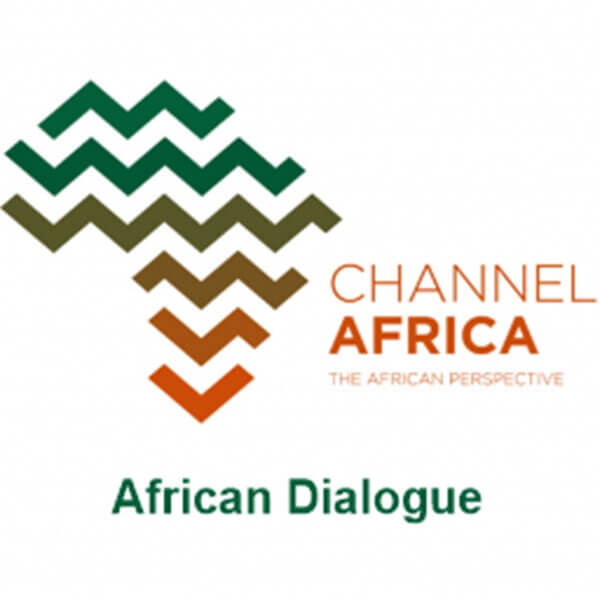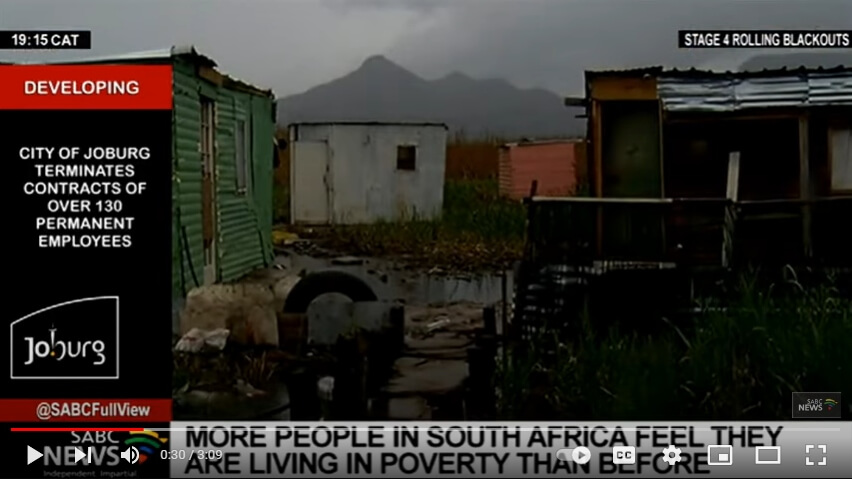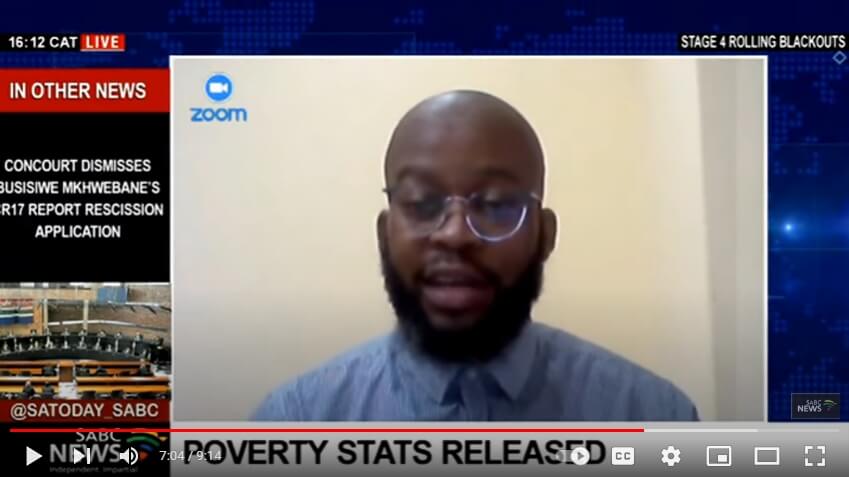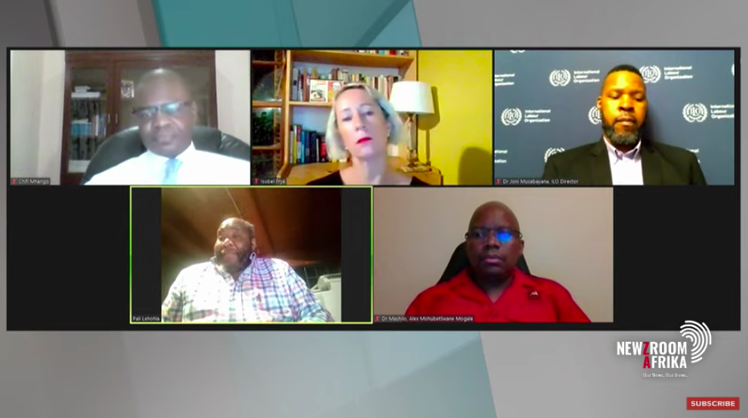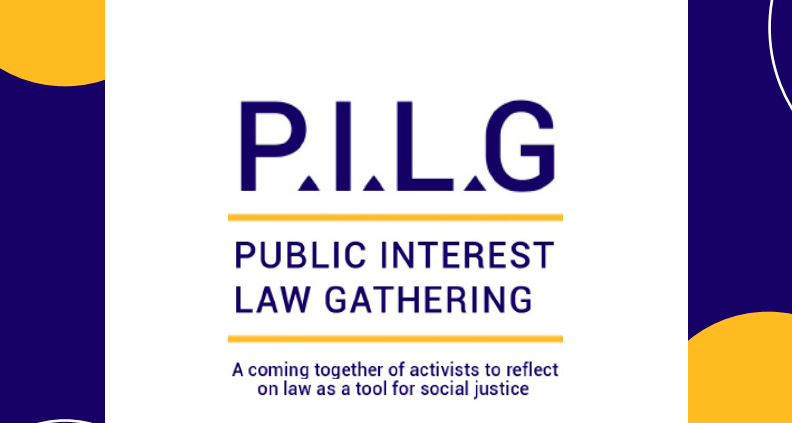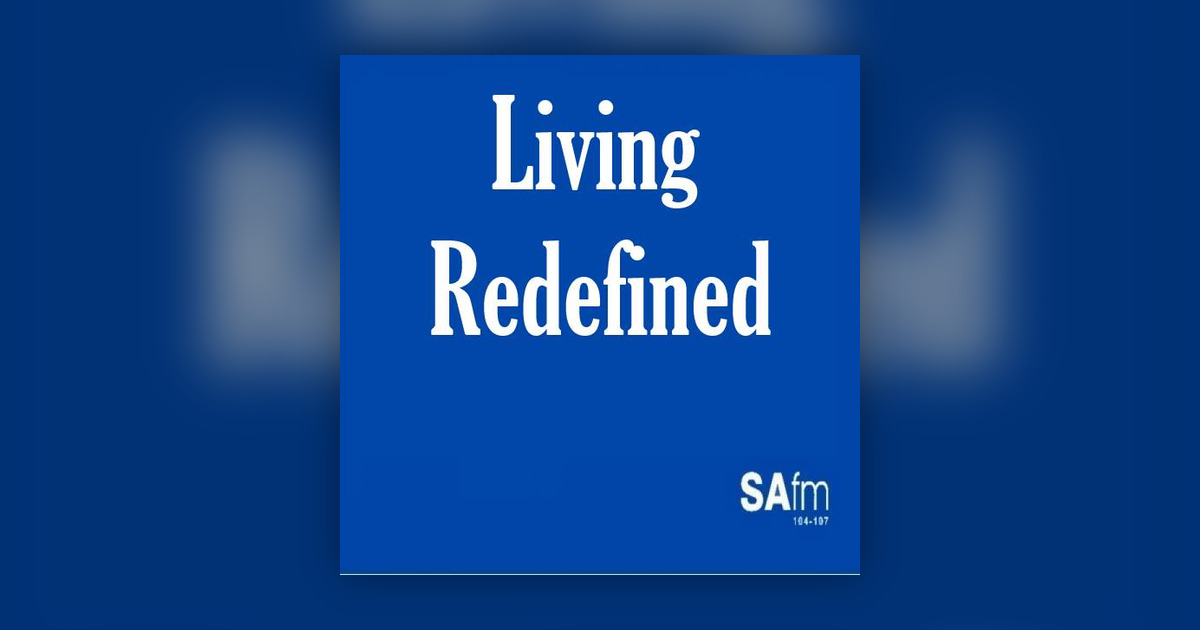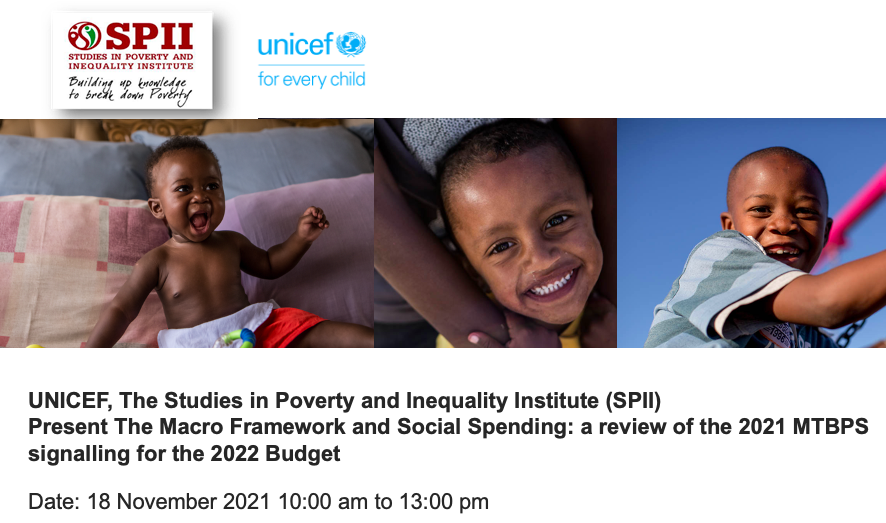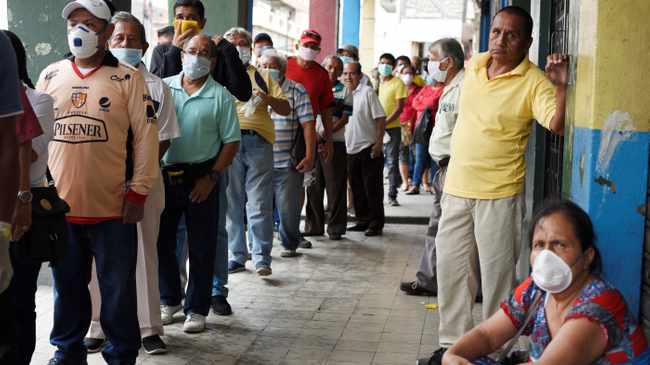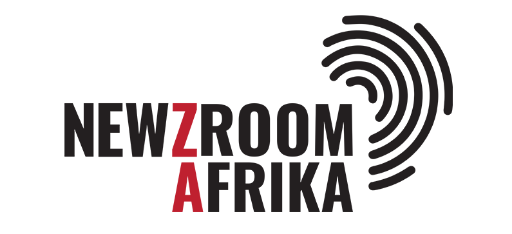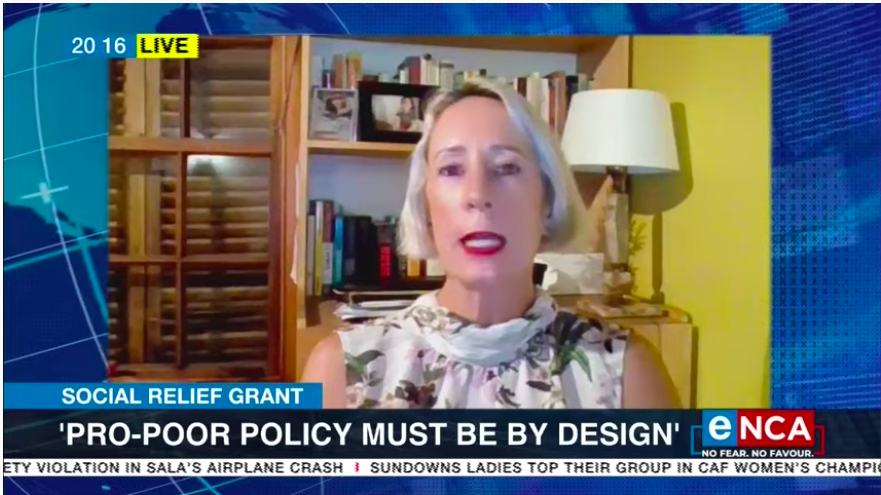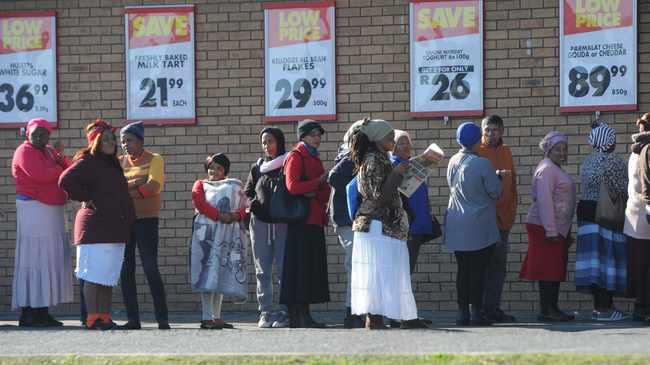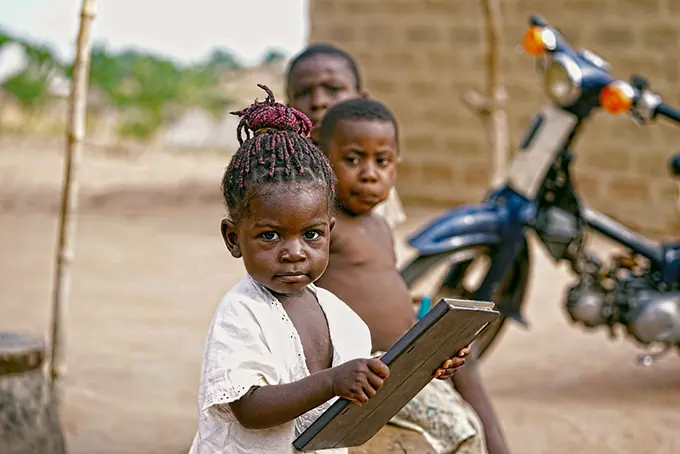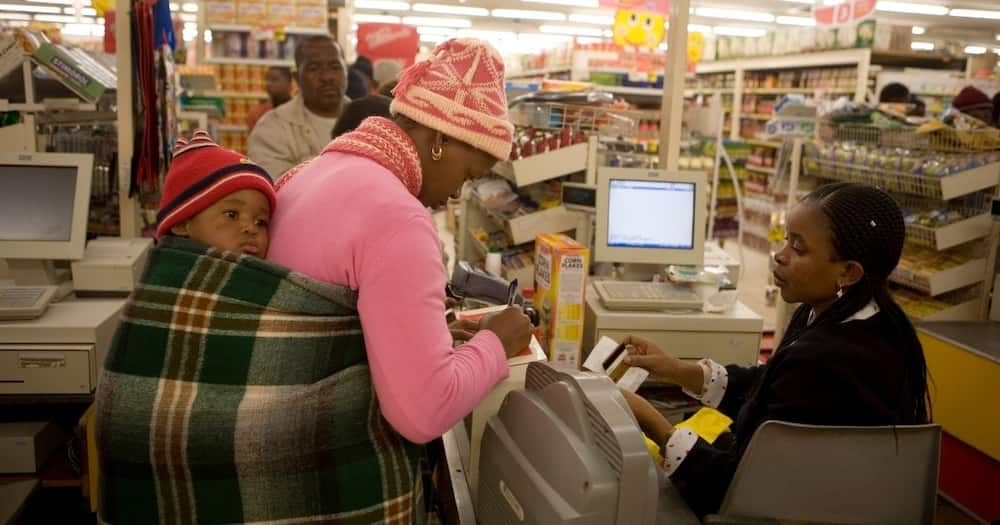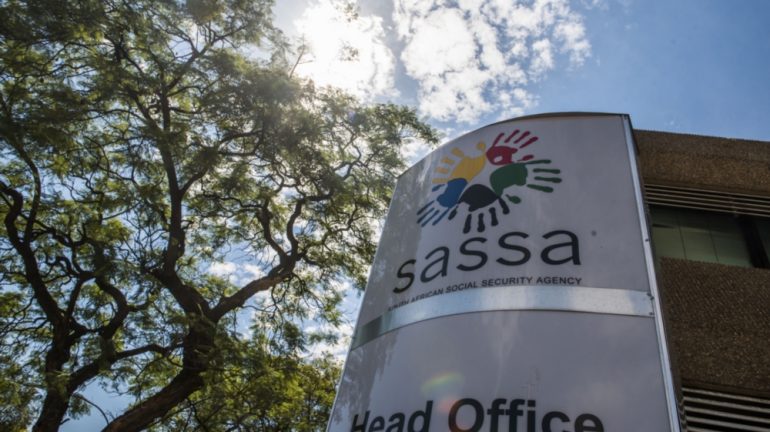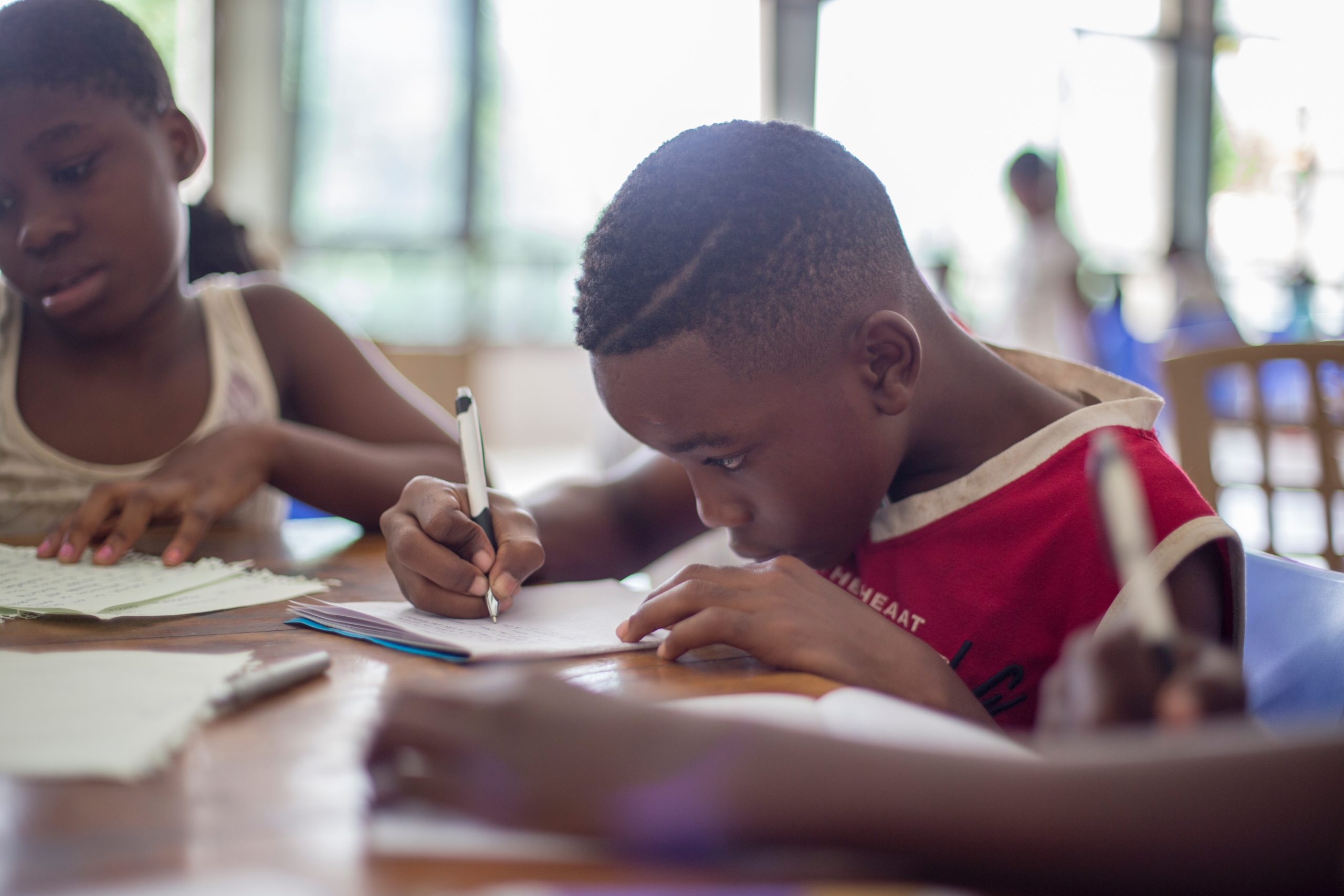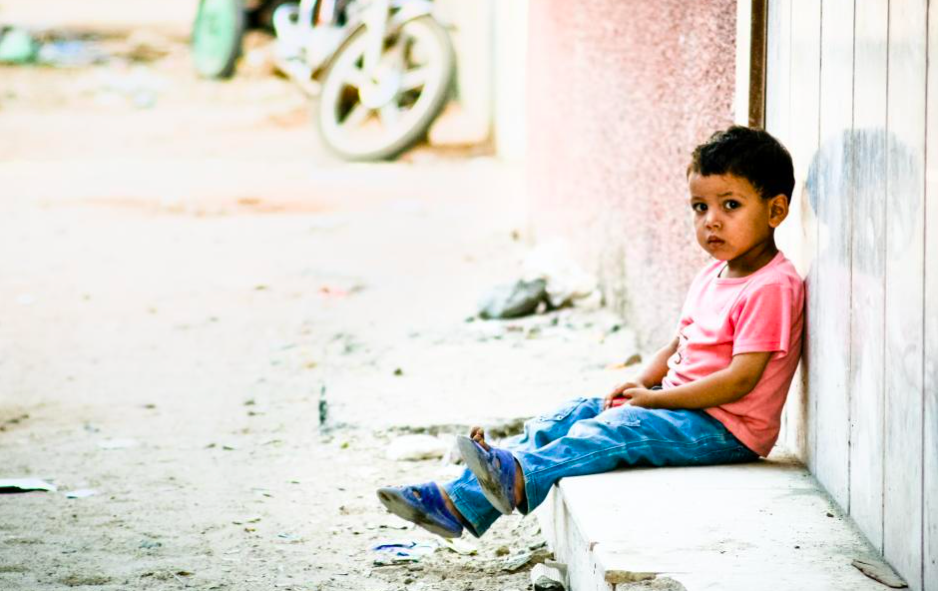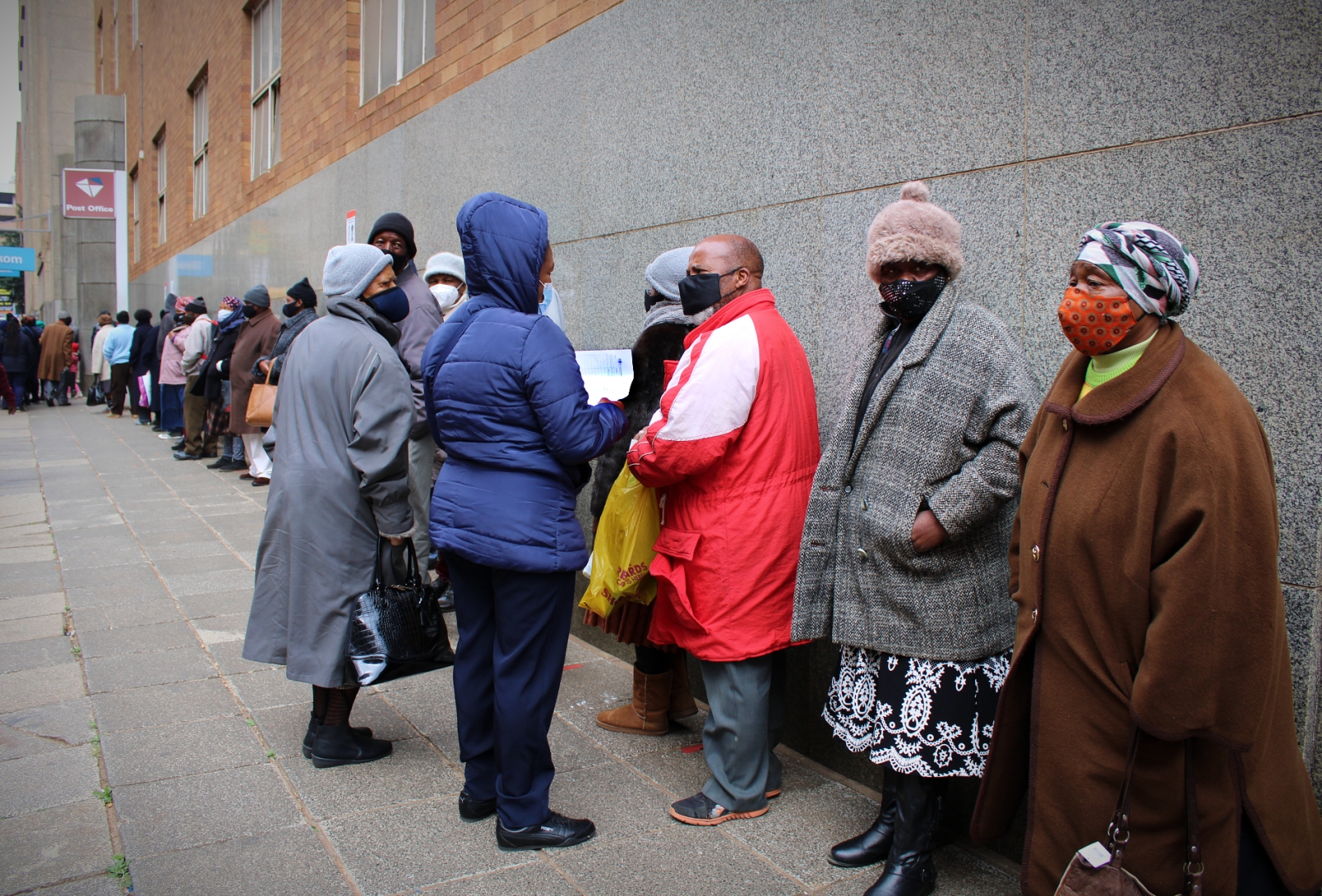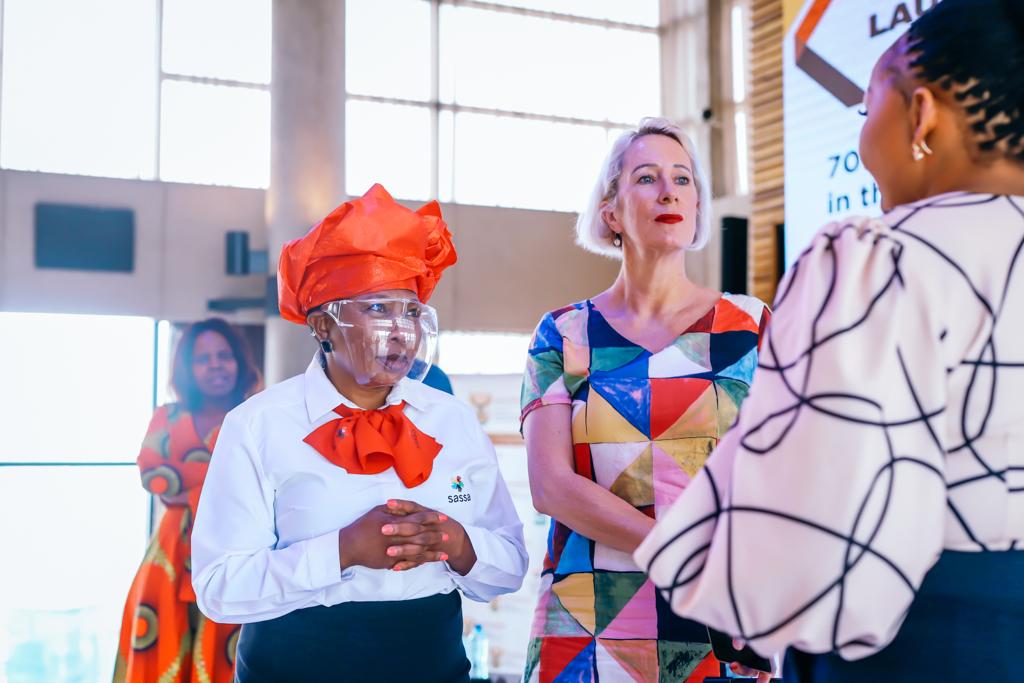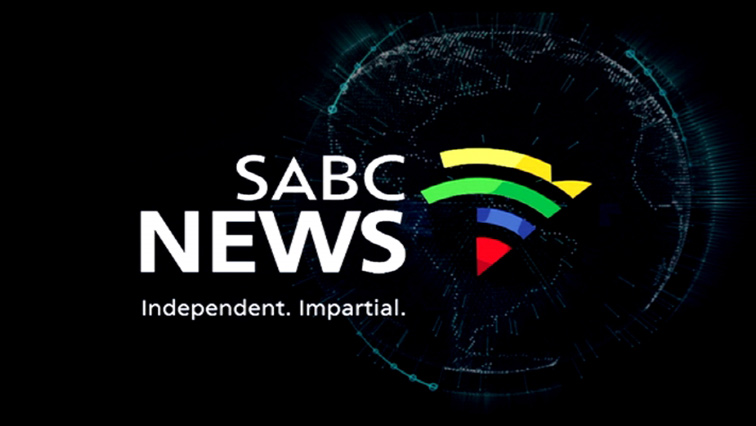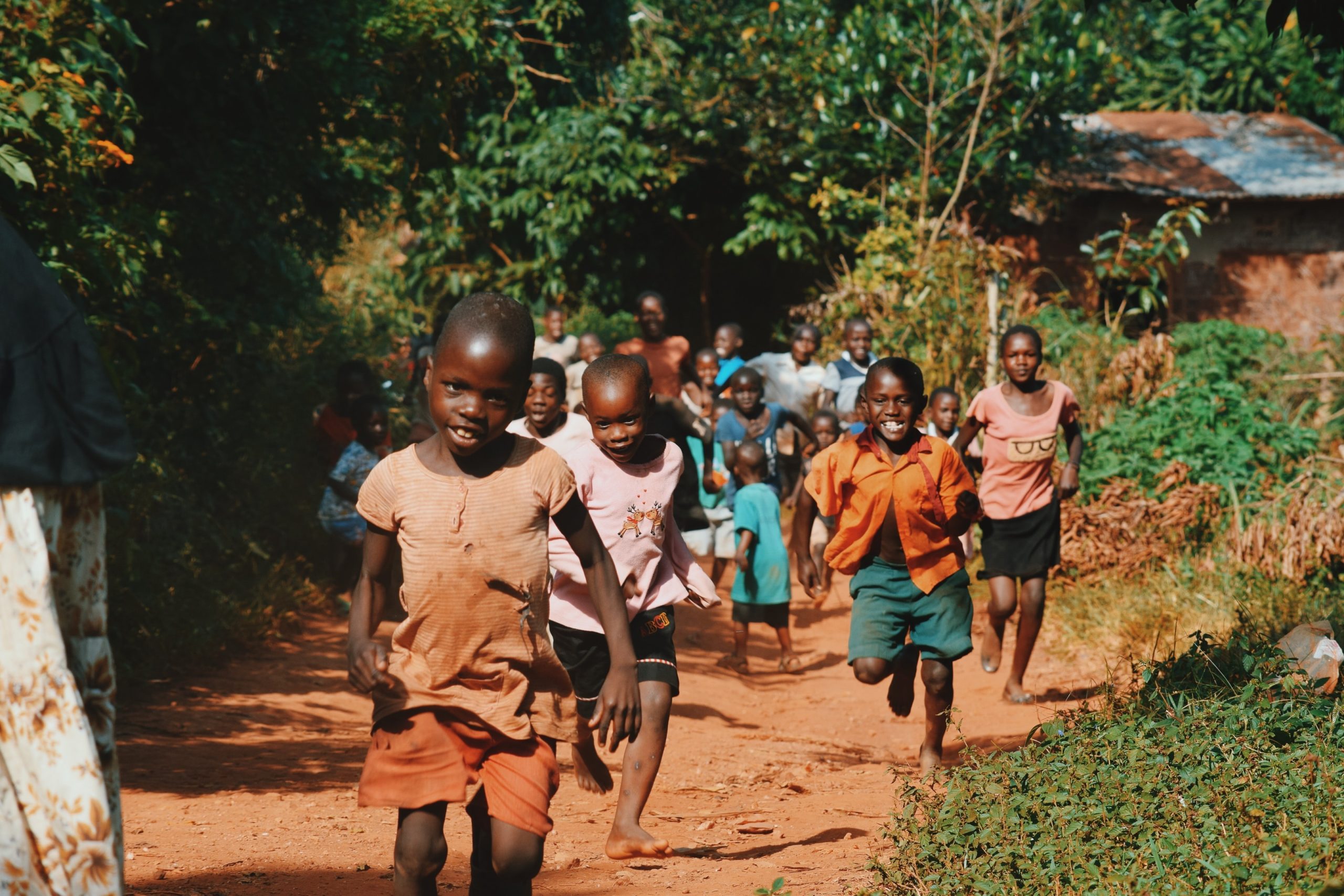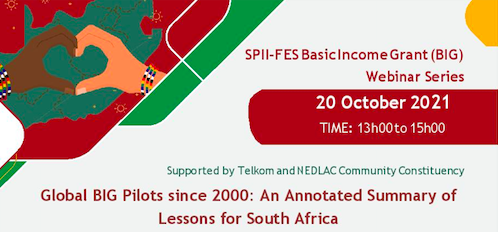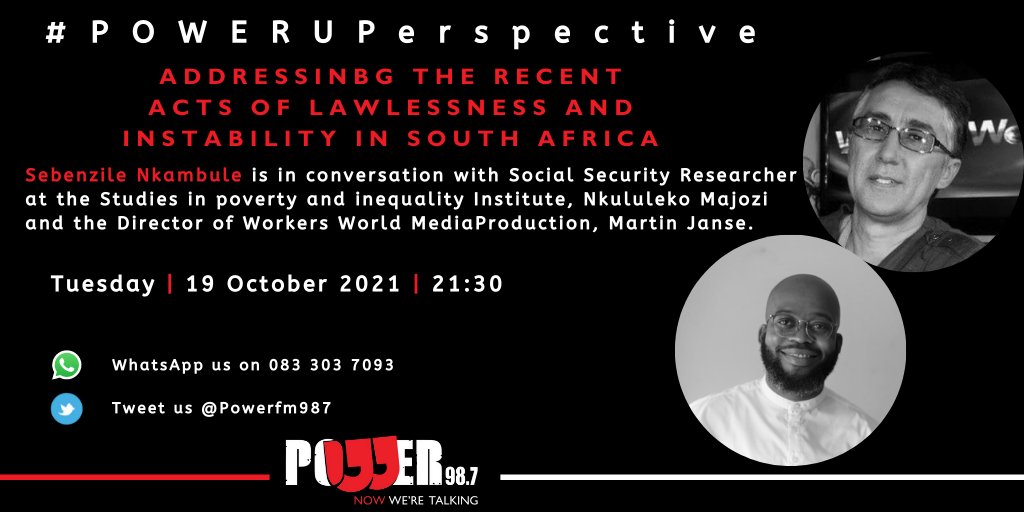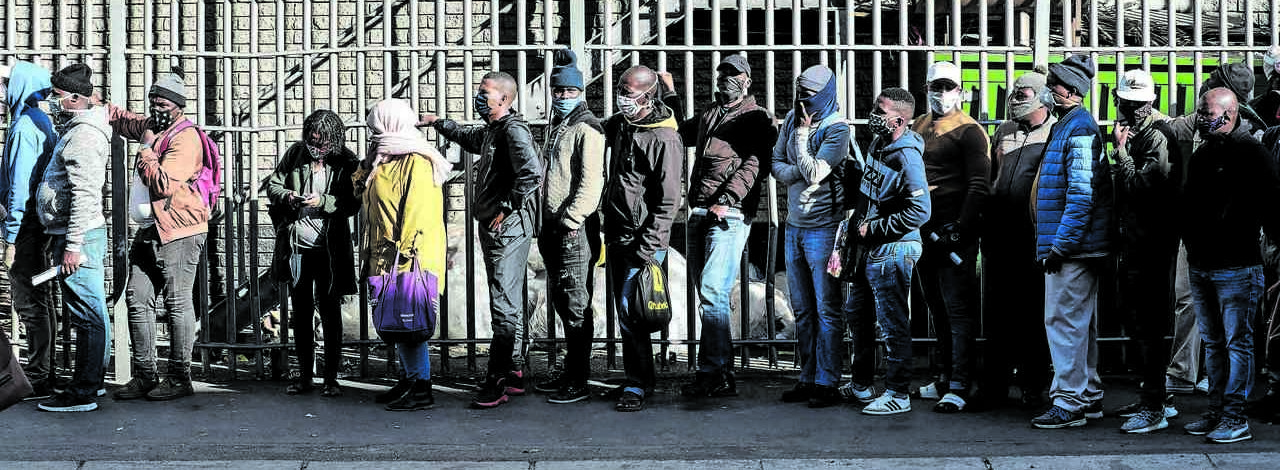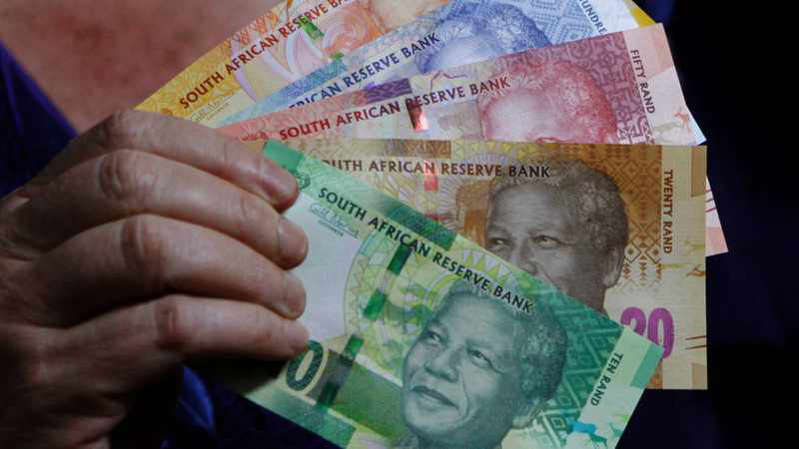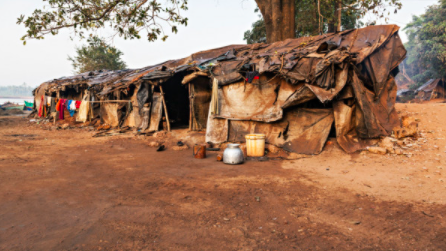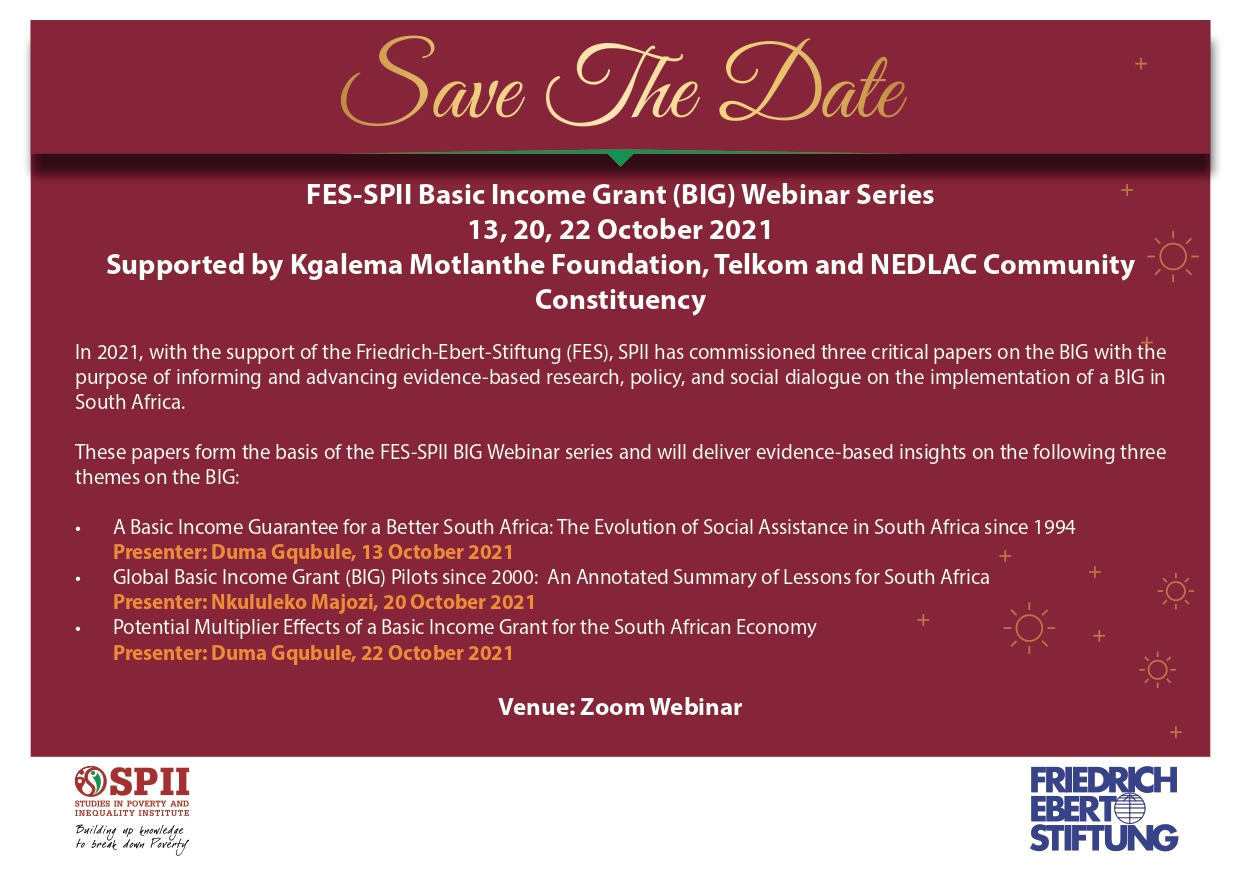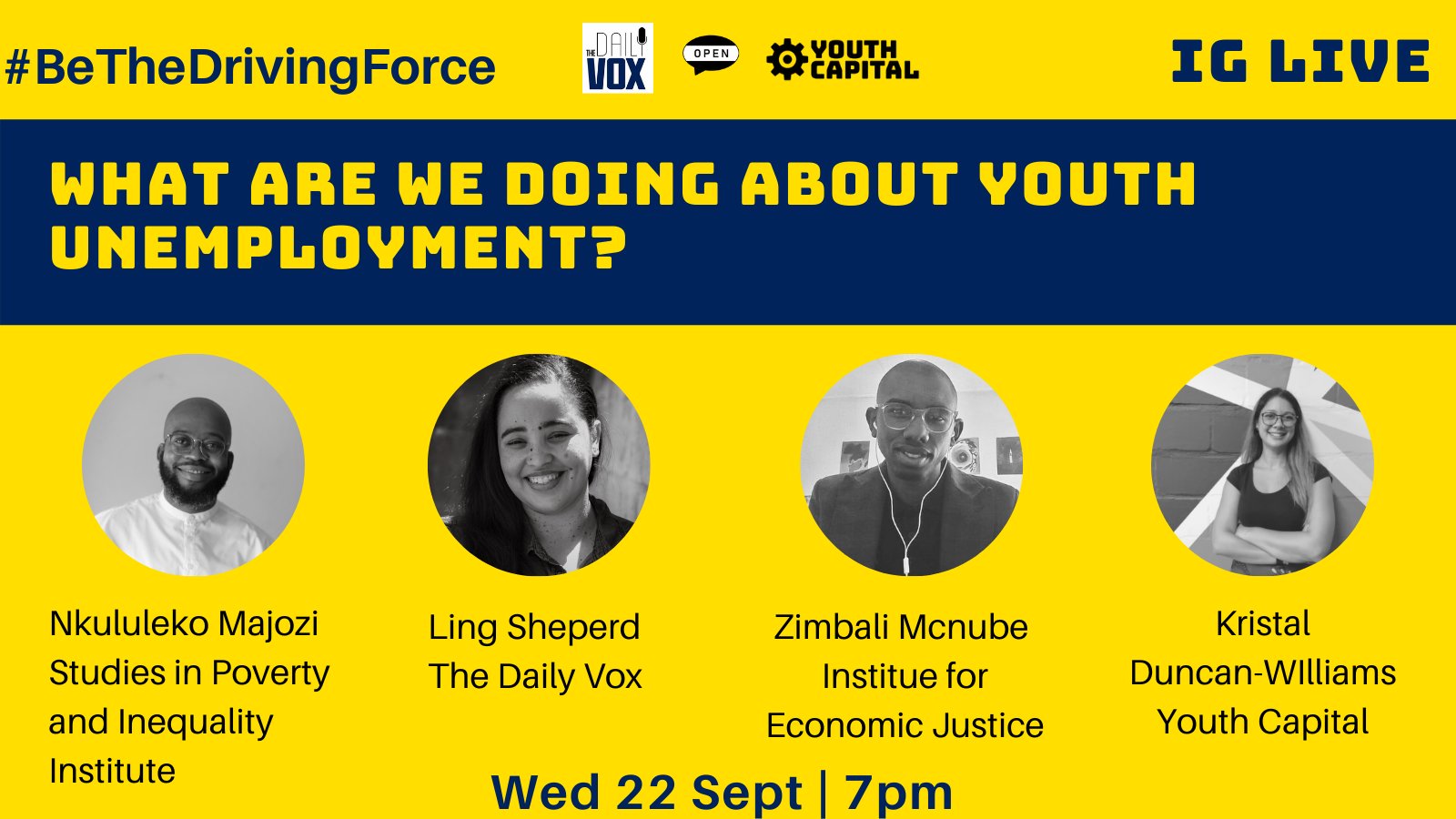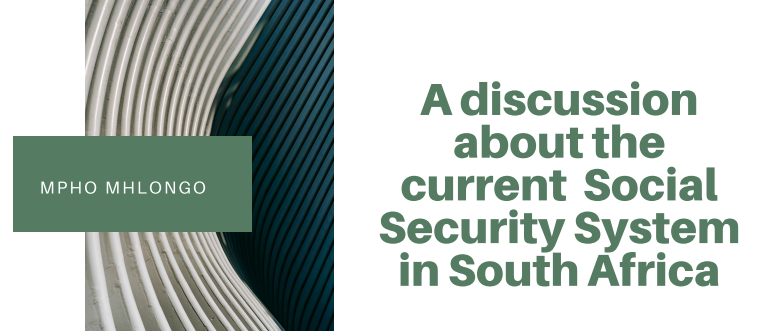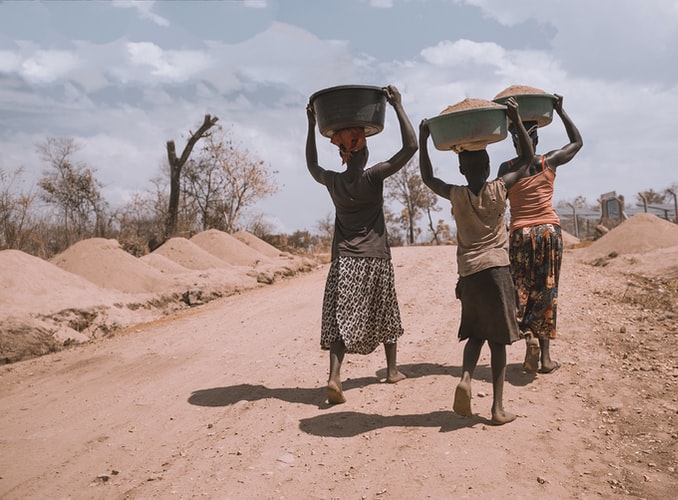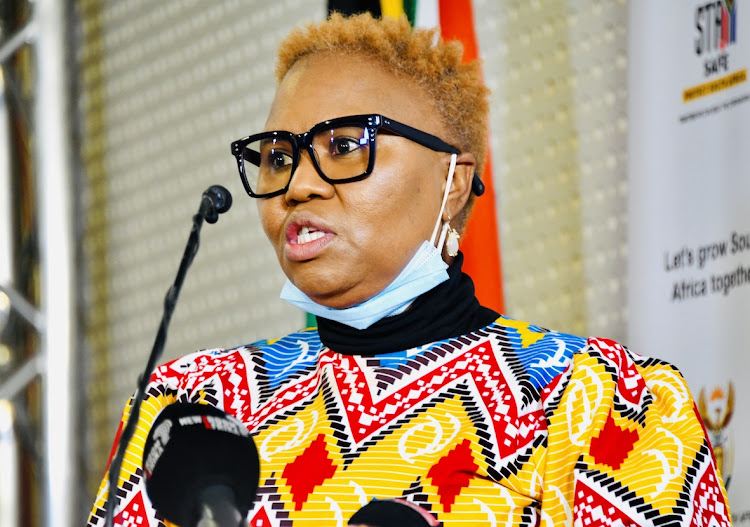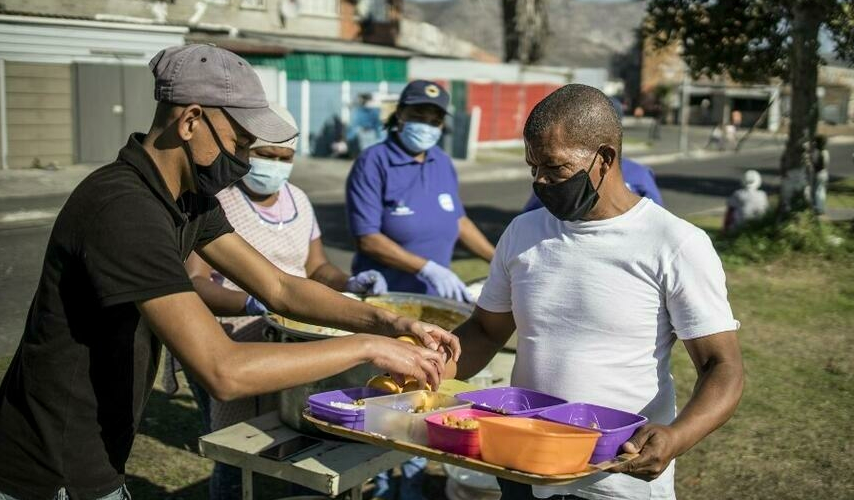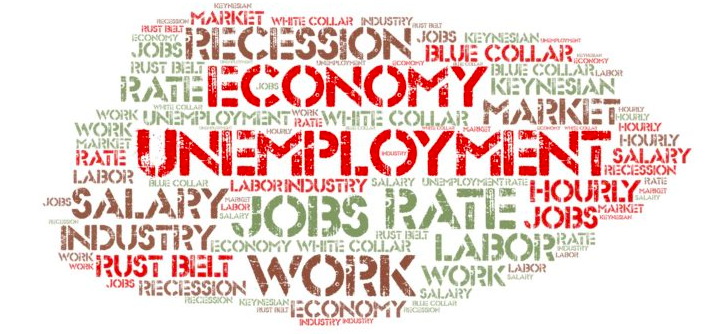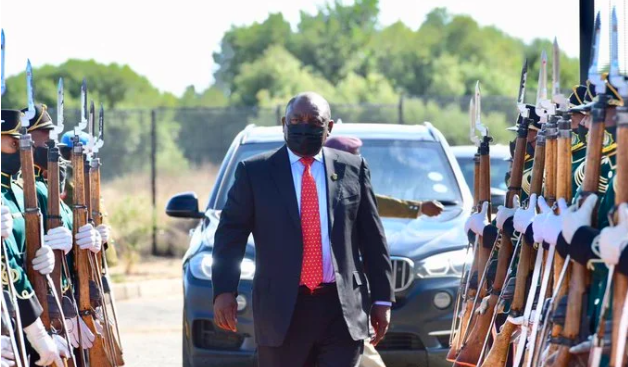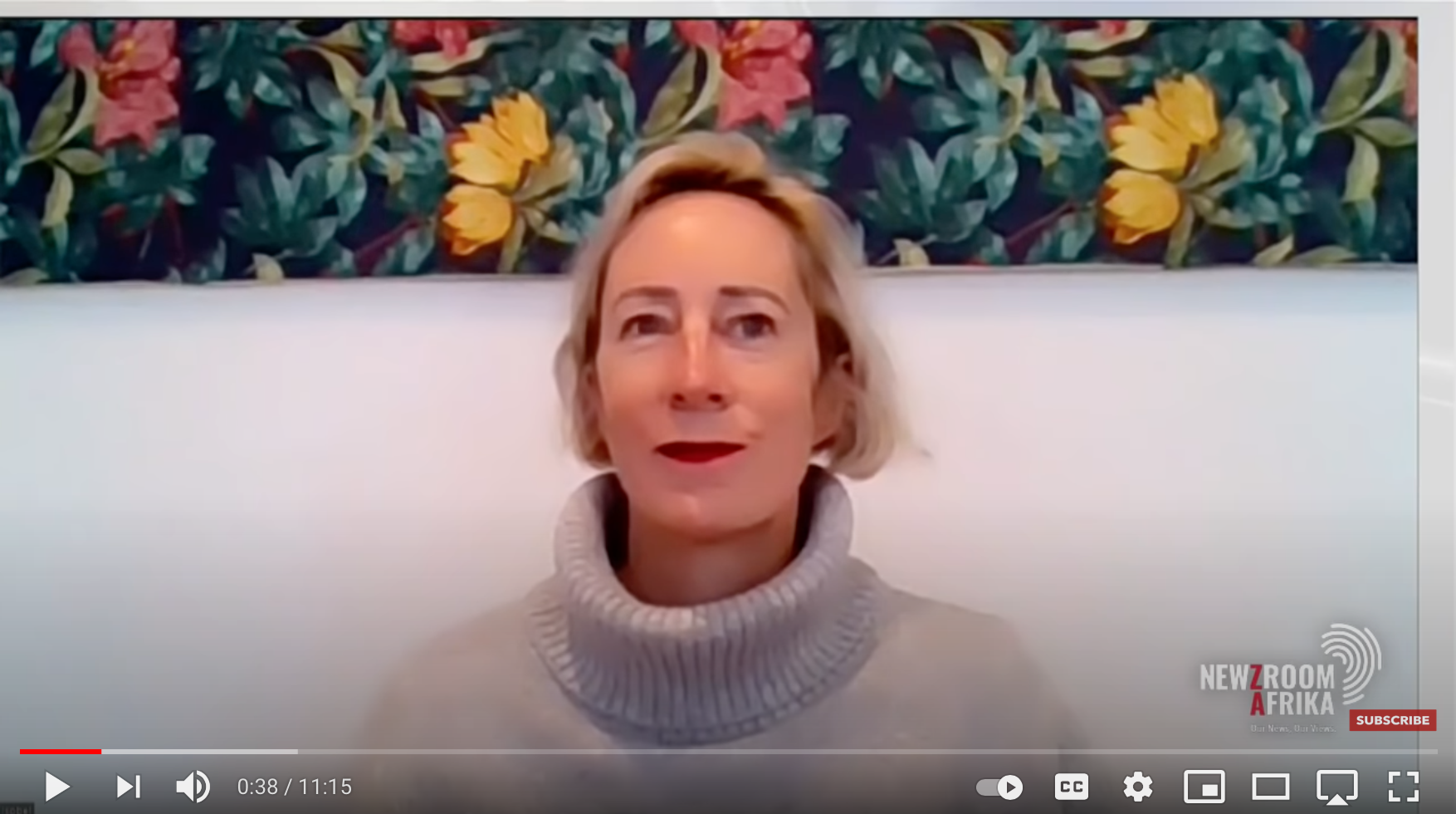SPII in the Media
In this episode, Guy Standing, internationally renown expert and widely published author on BIG speaks to Duma and Isobel about his experience as advisor to President Mandela on labour market issues, as well as his view that South Africa CANNOT afford not to have a Universal Basic Income Grant.
South Africa’s President Cyril Ramaphosa says he has established a committee of ministers to assess the impact that the conflict in Ukraine will have on food and fuel prices. To assist us on this we are joined by Amanda Fitchen, an independent economist, Thembinkosi Dlamini Senior Extractives Lead Oxfam South, Isobel Frye, Director at the Studies in Poverty and Inequality Institute.
Executive Director, Isobel Frye, speaks on Subjective Poverty in South Africa on SABC News; “We know that the burden of poverty in South Africa falls unfairly on the shoulders of women.”
Poverty in South Africa is directly linked to income inequality. Any measure that can fix the current situation needs to be linked to Income Security!
Isobel Frye Thinks We Can and Must Spend More on Social Security I invited Isobel Frye (Director, Studies in Poverty and Inequality Institute) to weigh in on what is becoming an internecine policy debate about unemployment, low growth and the size of our welfare state. Can we afford a Basic Income Grant? What would be its size, total cost to the country and what mechanism would be used to administer it? If the goal is ultimately to get people more economically active and into the labour market, doesn’t an increased debt burden make it harder to get the economy growing ….Read More
Unemployment rates at an all time high based on the QLFS, Q3 2021 Isobel Frye, the director at the Studies in Poverty and Inequality Institute; country director at International Labour Organisation South Africa, Dr Joni Musabayana; Dr Chifipa Mhango, chief economist at The Don Consulting Group; former statistician-general, Dr Pali Lehohla; and SACP spokerperson, Dr Alex Mashilo join Newzroom Afrika to discuss the newly released Statistics on the Quarterly Labour Force Survey (QLFS). “The poverty that people are experiencing are causing desperation, depression and anxiety,” Frye adds that we need to ensure that income distributed creates opportunities. Jobs will not ….Read More
The NEED for basic income grants now more than ever Christina van Straten, Basic Income Grant Advocacy intern at The Studies In Poverty And Inequality Institute, joins Cape Talk on the statistics that Statistics South Africa published its Quarterly Labour Force Survey (QFLS) yesterday for Q3 2021. The survey indicated that South Africa’s unemployment rate reached a record 34.9% for the third quarter – half a percentage point higher than in the second quarter. The unemployment rate among women was 37.3% in the third quarter of 2021 compared to 32.9% among men. Black African women (41.5% unemployment) were hardest hit, ….Read More
PILG Final Report The Public Interest Law Gathering (PILG) is an annual civil society convening of people and organisations who use law as a tool to advance social justice in South Africa.1 Started in 2011, PILG is an annual event which brings together public interest law practitioners, NGO researchers, community activists, law students, academics and donors. In 2021, the 10th iteration of PILG was held on 13 and 14 October (PILG was paused in 2020 due to the impact of the COVID-19 pandemic). While it takes place every year, PILG forms part of continuing conversations within the public interest law ….Read More
Some grant applicants raise concerns about SASSA’s processes and spend long hours in queues. Why is this? The SASSA points in which people were able to receive their SASSA grants were closed during the pandemic, and haven’t been rectified yet. SASSA is under fire due to the anguish caused to applicants, some elderly people have said to leave home at 4am in order to queue for the SASSA grant. This especially poses a threat in crime ridden communities, these elderly people are frail and still expected to be standing for extended periods of time. Nkululeko Majozi, Social Security Researcher ….Read More
UNICEF and SPII Public Reflection on MTBPS 2021 and Socio-Economic Rights Webinar Dear colleagues, UNICEF South Africa and SPII have the pleasure of inviting you to a public dialogue on the impact of the Medium Term Budget Policy Statement (MTBPS) 2021 on the realisation of socio-economic rights, including a critical reflection on children’s rights. These reflections take place against the background of a global health pandemic and the urgent need to find economic and social solutions to the pressing poverty and inequality challenges in the country. Your critical contribution as government, members of the development community, and civil society is highly valued ….Read More
Opening Address by SPII Executive Director Isobel Frye on the launch of the BIG website The launch of the BIG website South Africa is a country that takes your heart and soul and can be cruel and kind, but it seems, it can never be fair and does not want to be just. The unfairness of the colonial and apartheid past will for generations have an imprint on our children and our children’s children. The apartness of the racist capitalist regime that was condemned as a crime against humanity, with order imposed by might by an inhumane government, permeates every ….Read More
Sassa queues: ‘You can sit here the entire day waiting, when the time reaches 3pm, they turn you away’ Cape Town – The South African Social Security Agency (Sassa) has come under fire for the anguish it causes thousands of social grant applicants who queue from the early hours of the day and at times sleep on pavements in the hope of being assisted. Applicants camping outside Sassa offices in Bellville, Athlone and Mitchell’s Plain have for months complained about poor service at these branches. Branches open at 7.30am but many applicants, the majority of them elderly people, often queue ….Read More
An op-ed interview with Isobel Frye A DAMASCENE moment occurred for me last week, sitting in a meeting with the minister of finance before the much- postponed 2021 MTBPS. In responding to social partners’ concerns about state spend, and particularly the deep fears about the rumoured substitution of the R350 Social Distress Relief Grant with a single family grant, the minister said that government should be praised and not criticised for its budgets. Because the bulk of the state’s spend is targeted at the poor, people should be more grateful, was his sentiment. This is true. The bulk of the ….Read More
An op-ed interview with Isobel Frye A DAMASCENE moment occurred for me last week, sitting in a meeting with the minister of finance before the much- postponed 2021 MTBPS. In responding to social partners’ concerns about state spend, and particularly the deep fears about the rumoured substitution of the R350 Social Distress Relief Grant with a single family grant, the minister said that government should be praised and not criticised for its budgets. Because the bulk of the state’s spend is targeted at the poor, people should be more grateful, was his sentiment. This is true. The bulk of the ….Read More
Dr. Nqobile Zulu, Research Manager at the Studies in Poverty and Inequality Institute joins eNCA for a discussion on the Mid-term budget cuts (MTBPS). The Studies in poverty and inequality institute is concerned that spending will have to be made from already tightened budgets across the board. These cuts will wreak havoc on societies most vulnerable, being women, children, poor and elderly. The minister alluded to much. More spending regarding the police and army, we are spending more money on defence, we are not in a war situation/ we should consider poverty and the high majority of the unemployed. This ….Read More
An op-ed by Isobel Frye A DAMASCENE moment occurred for me last week, sitting in a meeting with the minister of finance before the much- postponed 2021 MTBPS. In responding to social partners’ concerns about state spend, and particularly the deep fears about the rumoured substitution of the R350 Social Distress Relief Grant with a single family grant, the minister said that government should be praised and not criticised for its budgets. Because the bulk of the state’s spend is targeted at the poor, people should be more grateful, was his sentiment. This is true. The bulk of the national ….Read More
An article by Health-e on children’s wellbeing Healthy diets are crucial for the overall mental well-being of a child. In South Africa, close to 3 million children go to bed hungry, causing physiological and emotional stress. A recent study led by the University of East Anglia found that eating a more nutritious diet was associated with better mental wellbeing in children. This included healthier breakfast and lunch habits. The study focused on 1253 primary school pupils aged between 8-11 years and 7570 secondary school pupils aged 12 – 18 years. In secondary school pupils, researchers found that higher consumption of fruits and ….Read More
An article by New Frame on the BIG Something other than doubts about the workability or fairness of the scheme is at play here, however. The real worry is that a household grant will be used as a substitute for a Universal Basic Income Grant (UBIG/BIG). The purpose of reform, that is, is negative: to stall current momentum in favour of a UBIG. There has been a furious response from several research and lobbying organisations to rumours of a reform of the welfare system in South Africa. Apparently, the South African government is considering a local version of the Bolsa ….Read More
SRD Grant vs Family grant In a move that is causing ructions in government, Finance Minister Enoch Godongwana is set to propose that the Covid-19 social relief of distress grant be terminated and replaced with a “family grant”. Government insiders say the proposal will be one of the major announcements in Godongwana’s first medium-term budget policy statement, which will be presented to Parliament on November 11. Sharp differences regarding the proposal are said be the real reason for the postponement of the mini budget speech by a week, rather than the stated reason of proximity to the local government election ….Read More
An article on the Family grant by The Citizen Civil society organisations have criticised a “secretive” and “closed door” proposal by government. National Treasury has proposed a family grant that would replace the R350 Covid Social Relief of Distress (SRD) grant. It would be paid to heads of households. The proposed family grant is discussed in this government document which we are making public. It is titled “Draft anti-poverty strategy (abridged version)” and it is dated September 2021. The family grant would only be offered to one million households in the first year and it would be gradually increased each year by another million ….Read More
THE RAPID ASSESSMENT OF THE IMPLEMENTATION AND UTILISATION OF THE SPECIAL COVID-19 SRD GRANT Introduction and Background South Africa went into a nation-wide lockdown from 26 March 2020, which was extended through a risk-adjusted approach ranging from Alert Level 5 to Alert Level 1. The loss of jobs and income for millions of South Africans living in poverty and without income protection saw the announcement and implementation of the Special COVID-19 Social Relief of Distress (SRD) grant for an initial period of 6 months. This was further extended by additional months to end in April 2021. The criteria for the ….Read More
Lessons Learnt: Conducting the Decent Standard of Living Study During a Global Pandemic Managing Director of BDRC Africa Linda Findlay reflects on challenges – and very unexpected benefits – of conducting telephonic research in the thick of the Covid-19 pandemic. It was some 16 years ago that a research study was first conducted in South Africa to determine the factors that constitute a “decent standard of living”. Much has happened in our country since then, socially, politically and economically, so it was considered time to update the study to reflect the realities of living in South Africa in 2021. The ….Read More
An op-ed from the Daily Maverick on the Family grant Civil society organisations campaigning for basic income are becoming increasingly alarmed by the fact that National Treasury seems determined to unilaterally, and secretively, push through a woefully misguided and unfeasible proposal for income support: the so-called family grant which will impact the other social grants in place. We have become aware of this proposal circulating in government in recent weeks but had largely assumed that it would be rejected because of its exclusionary nature, its deeply patriarchal bias, and quite simply, because it is unimplementable for multiple reasons. Provision of ….Read More
Keynote Address of the Minister of Social Development, Ms Lindiwe Zulu, MP on the occasion of the Launch of The Rapid Assessment of the Implementation and Utilisation of the Special Covid-19 Social Relief of Distress Grant Report. Chief Executive Officer of South African Social Security Agency, Ms. BJ Totsie Memela-Khambula; Deputy Director-General for Comprehensive Social Security, Ms. Brenda Sibeko; Executive Director of the Studies in Poverty and Inequality Institute, Ms Isobel Frye; Independent Consultant and Former Deputy Director-General of Social Development, Mr Selwyn Jehoma Senior Management and Programme Staff of the Department and Entities; Representatives of our international, multilateral and ….Read More
With Nkululeko Majozi – Social Security Researcher at the Studies in Poverty and Inequality Institute For the first time in two decades, extreme poverty is on the rise. United Nations Secretary General António Guterres made the remarks, marking the International Day for the Eradication of Poverty. Via zoom to discuss this some more is Nkululeko Majozi who is Social Security Researcher at the Studies in Poverty and Inequality Institute. The universal declaration of Human Rights has not resulted in tangible reduction in poverty, ,inequality, and hunger. What is needed now is bold moves and decisions by the government. The protesting ….Read More
An Annotated Summary of Lessons for South Africa This research paper builds on SPII’s 2021 research report reviewing social transfer programmes within the Southern African Development Community (SADC) and global social protection responses to Covid-19. SPII’s SADC report sought to consolidate existing knowledge of BIG pilots and the policy formation dynamics for social protection policies within the SADC region in order to argue for a launch of these programmes. The current study, however, seeks to present an annotated summary of lessons – from BIG pilot projects that have been implemented globally since the year 2000 – of the potential social ….Read More
The Second BIG Webinar, 20th October 2021 Press Release For immediate release Tuesday 19 October 2021 Studies in Poverty and Inequality Institute launches critical research on Global universal Basic Income Guarantee Pilots and their lessons for South Africa 20 October 2021. As the South African government continues to consider the feasibility of implementing a universal Basic Income Guarantee (BIG) in response to the country’s high rates of poverty and unemployment, the Studies in Poverty and Inequality Institute (SPII) remains steadfast in its mission to inform and advance the research, policy, and social dialogue for the implementation of a ….Read More
With Nkululeko Majozi The Social Security Researcher at the Studies in poverty and inequality Institute, Nkululeko Majozi and the Director of Workers World Media Production, Martin Jansen joined Sebenzile Nkambule to speak about recent acts of lawlessness and instability that have rocked the country as Civil organisations who are calling on the government and South Nkululeko Majozi Social Security Researcher at the Studies Africans to reflect on the recent events of lawlessness and instability that have rocked the country in the past few days. South Africa has experienced a wave of turbulence after members of cabinet were held against their ….Read More
Isobel Frye speaks to Chriselda Lewis on Poverty eradication International Day for the Eradication of Poverty is observed on the 17th of October annually. In 1987 on that day, over a hundred thousand people gathered at the Trocadéro in Paris, where the Universal Declaration of Human Rights was signed in 1948, to honour the victims of extreme poverty, violence and hunger. Poverty is not solely an economic issue, but rather a multidimensional phenomenon that encompasses a lack of both income and the basic capabilities to live in dignity. We speak to Isobel Frye, Director of South Africa’s Studies in Poverty ….Read More
The United Nations Committee on Economic, Social and Cultural Rights is reviewing South Africa’s progress on the implementation of a range of economic, social and cultural issues. This is why it matters. A significant aspect of the International Covenant on Economic, Social and Cultural Rights (ICESCR), which South Africa ratified in 2015, is that governments are required to report periodically on their implementation of the covenant. A body of independent experts, the UN Committee on Economic, Social and Cultural Rights (CESCR), considers these reports and makes recommendations to governments on actions they should take to improve their implementation. This is a valuable tool for the ….Read More
Studies in Poverty and Inequality Institute launches critical research on universal Basic Income Grant (BIG) with partners, 13 October 2021. Press Release For immediate release Tuesday 12 October 2021 Studies in Poverty and Inequality Institute launches critical research on universal Basic Income Grant (BIG) with partners 13 October 2021. As decision makers map out the feasibility of a universal BIG in South Africa’s response to its alarming poverty rates, a local think-tank, together with critical thought leaders, have compiled a series of BIG research papers to be launched weekly in webinars starting Wednesday, the 13 October 2021. Studies ….Read More
Johannesburg – South Africans will need to have a monthly income of approximately R7 911 to have a decent standard of living. This is according to research partners from the Studies in Poverty and Inequality Institute (SPII), Labour Research Service (LRS) and Southern African Social Policy Research Insights (SASPRI) on a Decent Standard of Living. A new launch at the 6th Annual Decent Standard of Living Colloquium showed that there are 34 socially perceived necessities (SPN) defined as needs to achieve a dignified life for all. The cost of these 34 SPNs is R7 911 for each person. If you ….Read More
Quantifying a Decent Standard of Living in Monetary Terms SASPRI has collaborated with colleagues at the Studies in Poverty and Inequality Institute (SPII) and the Labour Research Service (LRS) to estimate the income required for a decent standard of living for all South Africans. This culminated in 2018 with the launch of a project report and infographic in Midrand. The project was funded by the Wits School of Governance at the University of the Witwatersrand. This builds on several earlier studies over the past decade, including work by members of SASPRI in determining socially perceived necessities for an acceptable standard of living which involved focus groups ….Read More
Social Conversations: A Decent Standard of Living Guest on the line: Dr Nqobile Zulu, Research Manager at Studies in Poverty and Inequality Institute, speaking on the Decent Standard of Living. South Africa, September 30, 2021: A new launch at the 6th Annual Decent Standard of Living (DSL) Colloquium today demonstrates that there are 34 Socially Perceived Necessities defined as needs, common to the majority of South Africans from all walks of life, to achieve a dignified life for all. The Decent Standard of Living Measure, first piloted in 2006, was conducted telephonically among a representative sample in five South African ….Read More
Save the Date SPII-FES Basic Income Grant (BIG) Webinar Series 13, 20, 22 October 2021 Supported by Kgalema Motlanthe Foundation, Telkom and NEDLAC Community Constituency In 2021, with the support of the Friedrich-Ebert-Stiftung (FES), SPII has commissioned three critical papers on the BIG with the purpose of informing and advancing evidence-based research, policy, and social dialogue on the implementation of a BIG in South Africa. These papers form the basis of the FES-SPII BIG Webinar series and will deliver evidence-based insights on the following three themes on the BIG: • A Basic Income Guarantee for a Better South Africa: The ….Read More
An article by the DailyVox Team We all read the stats – youth unemployment is a ticking bomb- but what are we actually doing to ensure that young SA have the skills, opportunity and support to find and maintain employment? In this conversation, we go deep to unveil what the budget researchers say about our response to youth unemployment; but with young people’s views and lived experiences at the centre. #BeTheDrivingForce Zimbali Mncube is a Social Justice Activist & Researcher. Nkululeko Majozi, Social Security Researcher at the Studies in Poverty and Inequality Institute. Kristal Duncan-Williams is the project lead at Youth ….Read More
Isobel Frye, director of the Studies in Poverty and Inequality Institute Studies in Poverty and Inequality Institute’s Director, Isobel Frye, speaks to ChaiFM on the Basic income Grant and the Decent Standard of Living project. How can we bridge the gap between the poor and the wealthy?
Mpho Mhlongo presents a discussion about the current Social Security System in South Africa Studies in Poverty and Inequality Institute’s Mpho Mhlongo joins Are We Transforming to discuss her views on social security issues and how they should be viewed. Mpho has graduated with a BA(Law)(Wits); LLB(Wits) and is the Company Secretary Intern at SPII & Lobbyist Social assistance is by far, one of the most effective pro-poor programmes that has and continues to keep even more vulnerable South Africans from falling deeper into poverty, some of the existing grants include the Older persons, War Veteran’s Grant, Grants In ….Read More
Midday Report with Mandy Wiener Withdrawal of the Green Paper sparks controversy The Minister of Social Development, Lindiwe Zulu, withdrew the Green Paper, without a specific reason yesterday. Isobel Frye, director of the Studies in Poverty and Inequality Institute (SPII) speaks to Mandy Wiener on the impact the Green Paper has on Poverty and Social Security. Proposing the 12% contributions from all employed people goes into a government managed investment fund, which makes provisions for those in or heading towards retirement, unemployment and disability. “We need to understand the full process around it, the presentation was unfair.” Frye ….Read More
Christina van Straten: Why the BIG is a solution for Gender-Based Violence “The fact that dignified people are more productive is at the epicentre of this issue, yet it is tough to be dignified when you are being abused or are unable to fulfil your basic human needs,” writes Studies In Poverty and Inequality Institute’s Christina van Straten. Recent research indicates that financially vulnerable women in South Africa are more likely to become victims of gender-based violence (GBV) while financially vulnerable men are more likely to be perpetrators of GBV as a result of their need to reassert their masculinity. It ….Read More
The following is an excerpt from The Sowetan: The government’s proposal of a statutory pension and insurance regime funded through mandatory contributions from workers and employers has received a lukewarm welcome from organised labour and civil society. The department of social development published a comprehensive social security and retirement reform green paper on Wednesday, which proposes that employers and employees pay up between 8% and 12% of earnings to the new fund. Trade union federation Cosatu, which has been calling for a comprehensive social security net, said while it had not properly considered the proposals, it welcomed that there was ….Read More
South Africa: Basic income supporters put the issue back on the table Following the third wave of Covid-19 and the riots last month, the country has put in place a monthly aid of 350 rand – or about twenty euros – for the most disadvantaged. While the usual social assistance paid to 18 million South Africans is not enough to cover all the needs, the government is now increasingly considering making this emergency assistance sustainable, in the form of a basic income – a sort of living income. A still unprecedented project in Africa. With our correspondent in Johannesburg, Claire Bargelès ….Read More
SAfm: Financially dependent women are at higher risk of Gender-Based Violence Late night conversations with Patricia Ntuli, Studies in Poverty and Inequality Institute’s Tina van Straten spoke about Poverty and the correlation to Gender based violence. Not only are financially vulnerable women more susceptible to gender-based violence and rape, but men who are financially vulnerable become perpetrators because of their circumstances. The four main causes for Gender-based Violence are harmful masculinities, normalisation/ over exposure to violence, poverty and lack of accountability/ institutional failure. An estimated 56% of men have admitted to raping and beating women in the past ….Read More
Leading NPO’s say Womens’ Month can’t be celebrated when most are still suffering “Apartheid victimised women because of the colour of their skin” – Director of Studies in Poverty and Inequality Institute, Isobel Frye on the Womens’ month interview with Newzroom Afrika. Women are being victimised for various reasons, most of these reasons are due to poverty, unemployment and social reproduction burdens. The levels of poverty and hunger in households are carried solely by women, as well as mental health concerns which generated from the Covid-19 pandemic. It is alarming, and we need to enable women to know that ….Read More
Violence and inequality—how the end of apartheid failed black South Africa In the early 1990s, Nelson Mandela and his political party, the ANC, ended apartheid peacefully but the leaders of the new democracy did not address the economic inequality of the apartheid era. Today it is tearing the nation apart. Isobel Frye, director of the Studies in Poverty and Inequality Institute unpacks the effects, root cause and impact of the civil unrest that gripped South Africa recently, stirred by the jailing of former president Jacob Zuma. The majority of the nation demanded his release. The history of apartheid in South ….Read More
Op-Ed: I lost my father, then my job, as Covid-19 fuelled youth unemployment I caught Covid-19 in December 2020. And I was incapacitated beyond function, my chest was tight and it was difficult to sleep. I felt too weak to even bath myself. I spent a great amount of time in bed. After I sent my employer my positive test results, I still received emails to find out why I wasn’t logged on to the system. This was the beginning of my six-month journey of unemployment because of the Covid-19 pandemic. The Covid-19 pandemic reached South Africa around mid-March 2020. ….Read More
South Africa has run out of options, say economists – The Business Tech team “The debate on the social safety net has shifted since the July unrest – and there is now broader agreement that extreme poverty and inequality can lead to future episodes of damaging instability,” say economists at Old Mutual Wealth. In a research note this week, the group noted that the debate around additional financial support has moved on from whether it needs to be implemented to how the country and the government can do it. “Some argue for a basic income grant, while the finance minister has reiterated that he ….Read More
Letter: Judith’s Prudence, Daily Maverick ‘Now is the winter of our discontent…’ Shakespeare: Richard III, spoken by Gloucester ‘Despair is the state we fall into when our imagination fails. When we have no stories that describe the present and guide the future, hope evaporates. Political failure is, in essence, a failure of imagination’ (George Monbiot, 2017). Welcome to Judith’s Prudence. Every two weeks Judith February will curate the latest legal-related journalism, events and analysis for your benefit. Know a legal professional who’d benefit from this? Forward it on. Dear Maverick If this newsletter had been written last week, it may have been ….Read More
702: Isobel Frye | Director at Studies In Poverty And Inequality Institute responds to reasons for unrest Studies in Poverty and Inequality Institute Director, Isobel Frye, speaks to Mandy Wiener from 702 during the Midday Report about the current looting, rising poverty rates and lack of South African government’s commitment to a Basic Income Grant, which will contribute to a decent standard of living for all. Source: 702 podcast
South Africans living in poverty have faced some of their most challenging circumstances in light of record unemployment, Covid-19 lockdown and diminishing incomes. Meanwhile, the jailing of former president Jacob Zuma is believed to have sparked the rampant looting and violent scenes that have played out in the past few days. At what point does inequality pose a threat to stability, and will this crisis prompt the government to ensure that poverty is addressed as a matter of urgency? Will we ever achieve a decent standard of living in South Africa? SPII Director, Isobel Frye, weighs in on these issues. Source: ….Read More
Recent Posts
- Can we afford NOT to have a BIG in South Africa? – Podcast
- Joint Stakeholder Submission on the Right to Adequate Standard of Living in South Africa
- SPII’s Contribution – Submission to UN CESCR
- Political Elites Must Break Ranks to Crush Poverty, Inequality
- Podcast: High Price to Pay for the Rising Cost of Living
- More People Believe They Are Living Under Poverty in South Africa
- Nkululeko Majozi Speaking on Subjective Poverty in South Africa
- Podcast: In The Ring With Eusebius McKaiser – Can we afford a Basic Income Grant?
- Extending the Social Relief of Distress grant is not enough to alleviate plight of poor, says civil society
- Global Basic Income Grant Pilots Since 2000


